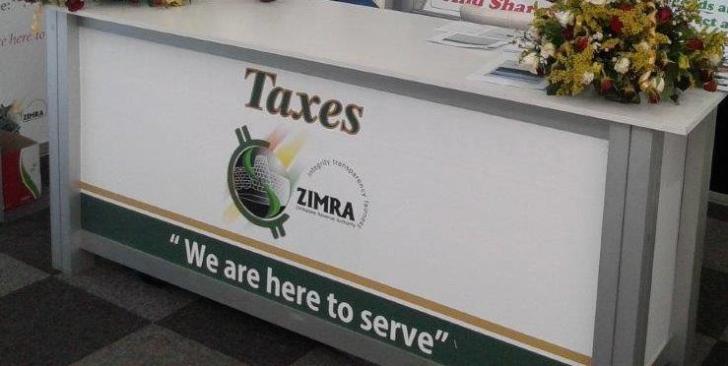News / National
Zimbabwe economy needs robust tax system
05 Sep 2024 at 06:07hrs |
0 Views

The Zimbabwe Revenue Authority (ZIMRA) is pushing for a modernized tax system to address the complexities of Zimbabwe's economy, particularly the predominantly cash-based informal sector.
ZIMRA's board chairman, Anthony Mandiwanza, emphasized the need for legislative support to expand the tax base, fund operations, and automate processes. He highlighted the importance of a fair and efficient tax system to foster compliance and economic growth, with a focus on utilizing technology, including artificial intelligence, to shift from manual to digital processes.
ZIMRA is working to improve revenue collection, as tax revenues are vital for funding development goals and reducing reliance on external assistance.
Challenges such as porous borders, manual processes, and limited capital expenditure are being addressed through digitalization and international best practices.
ZIMRA Commissioner General, Regina Chinamasa, reported that cumulative revenue from January to August 2024 amounted to ZiG38.88 billion, falling short of the ZiG42.82 billion target. However, she expressed optimism that the annual target could be met through system enhancements and ZIMRA's ongoing digitalization initiatives. The introduction of electronic systems has simplified taxpayer registration, return filing, and payments.
Misheck Govha, ZIMRA's Commissioner of Domestic Taxes, detailed the rollout of the Tax and Revenue Management System (TaRMS), which integrates with other government agencies to enhance revenue administration.
ZIMRA is also implementing the Block Management System (BMS) to improve tax compliance among small and medium enterprises (SMEs) and informal traders.
To manage tax debt, Govha mentioned plans for stronger debt recovery strategies, including business closures, asset seizures, and legal actions against defaulters. He noted that such measures require supportive legislation to be fully effective.
The United Nations Development Programme (UNDP) representative, Alex Warren-Rodriguez, emphasized that Zimbabwe can leverage domestic resource mobilization to support development and achieve Sustainable Development Goals (SDGs).
ZIMRA's board chairman, Anthony Mandiwanza, emphasized the need for legislative support to expand the tax base, fund operations, and automate processes. He highlighted the importance of a fair and efficient tax system to foster compliance and economic growth, with a focus on utilizing technology, including artificial intelligence, to shift from manual to digital processes.
ZIMRA is working to improve revenue collection, as tax revenues are vital for funding development goals and reducing reliance on external assistance.
Challenges such as porous borders, manual processes, and limited capital expenditure are being addressed through digitalization and international best practices.
Misheck Govha, ZIMRA's Commissioner of Domestic Taxes, detailed the rollout of the Tax and Revenue Management System (TaRMS), which integrates with other government agencies to enhance revenue administration.
ZIMRA is also implementing the Block Management System (BMS) to improve tax compliance among small and medium enterprises (SMEs) and informal traders.
To manage tax debt, Govha mentioned plans for stronger debt recovery strategies, including business closures, asset seizures, and legal actions against defaulters. He noted that such measures require supportive legislation to be fully effective.
The United Nations Development Programme (UNDP) representative, Alex Warren-Rodriguez, emphasized that Zimbabwe can leverage domestic resource mobilization to support development and achieve Sustainable Development Goals (SDGs).
Source - the herald
Join the discussion
Loading comments…
































